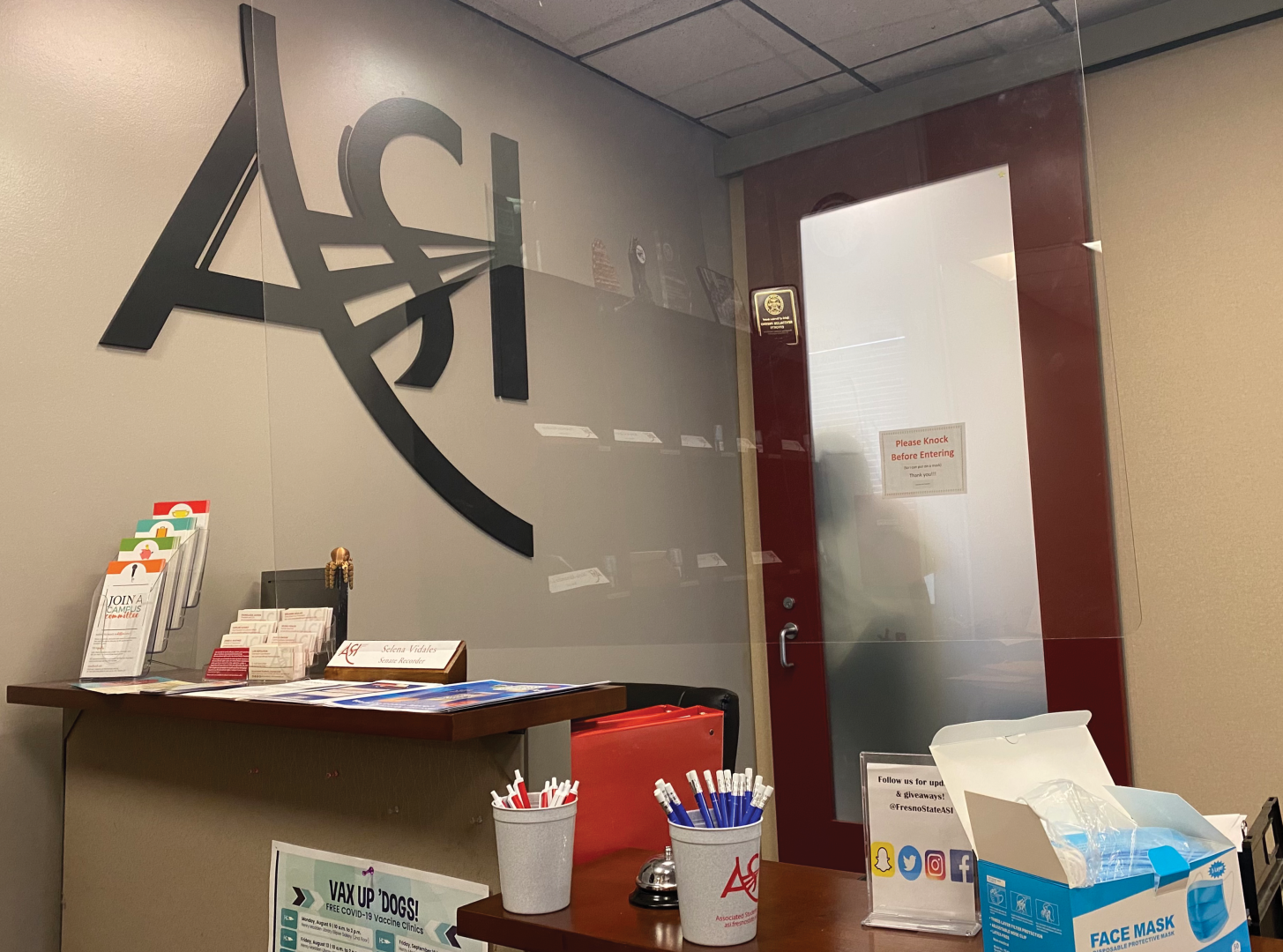Fresno State Associated Students Inc. (ASI) senators discussed a menstrual product proposal and undocumented ally training from the Dream Success Center at the senate meeting on Wednesday, Sept. 8.
Senators met in-person, but due to current circumstances caused by COVID-19 the meeting remained closed to the public and was live streamed to the ASI Facebook page.
Senator of Operations and Resident Affairs Megan Torres brought attention to the menstrual product proposal she previously recommended as a student to ASI during the 2020-2021 year regarding accessibility to menstrual products on campus.
“Based on our data, there’s about 12,000 students who use menstrual products here on campus,” Torres said. “While the majority are female students, there are a lot of students who are nonbinary and male students who require these products, and they’re really not represented or heard.”
The resolution to expand inclusive accessibility to menstrual products was passed at the Sept. 2, 2020 meeting unanimously by the former 2020-2021 ASI senate. Torres said that the project will require funding from ASI.
According to Torres, the menstrual products will be purchased one unit at $125, and each unit will contain 500 products. She said that a six-month trial run of the project will require 60 units – 30,000 menstrual products – and will total $8,162.50 with tax and shipping.
“And if you break that down with our 12,000 students, that’s about 68 cents per student. 68. That is a very doable number,” Torres said.
At this time, Torres said a reserve pull from the ASI budget will fully cover the project and will provide menstrual products at about 30 to 50 locations including student housing, gender-neutral bathrooms and additional womens’ restrooms.
David Klein, senator of university innovations, said that adding the 68 cents as a student fee increase could be a permanent solution to the project.
“I’m a little worried if we were to approve the form through ASI that they wouldn’t continuously get approved … so that’s why I wanted to propose adding it into the student fund … that way it actually gets paid for every year,” Klein said.
ASI President D’Aungillique Jackson assured that, if the project were approved long-term, it would be written into the ASI budget.
“Ideally what you’re doing is solidifying this for the next year… So there is security in utilizing that ASI budget,” Jackson said.
The funding for this project was discussed at this meeting and will be voted upon at a later date.
Senator for the College of Science and Mathematics Jacqueline Campos Ledezma discussed information about a planned undocumented ally training for student leaders to be held by the Dream Success Center.
Ledezma currently works as a peer mentor and helps guide a group of first-year Deferred Action for Childhood Arrivals (DACA) recipients.
“As a peer-mentor, I can attest to the devastating implications that our students have experienced due to the hold on first-time DACA applications,” she said. “I have also noticed a decrease in the number of first-year undocumented students enrolled in classes.”
Ledezma said that after discussion with Gaby Encinas, coordinator for the Dream Success Center, the center plans to host a number of events beginning the week of Oct. 18. The events will include information for students about their legal services and other resources.
“The training will bring awareness to the obstacles that our students are facing and provide meaningful allyships that will make them feel supported,” she said.
Other events planned include guest speakers and information sessions, alongside a condensed, two-hour undocumented ally training for interested student leaders.
“Take advantage of this resource because, for example, like you’re saying because it’s hard and a lot of people want to know about this stuff, but like it’s hard… know that this resource is here. Take advantage of it. We are leaders, and we should be leading by example,” Senator of Diversity, Equity and Inclusion Karen Carrillo said.




